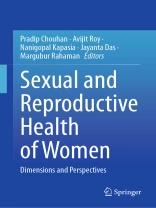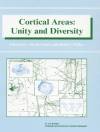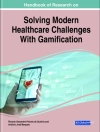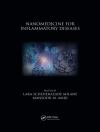The book offers readers a nuanced understanding of sexual and reproductive rights, health status, associated concerns and policy critiques within the context of South Asia. While sexual and reproductive health issues are prevalent worldwide, the severity and underlying drivers vary across regions. South Asia, identified as a hotspot for vulnerability in sexual and reproductive health, currently lacks comprehensive coverage of existing global perspectives on the subject.
Intended as a comprehensive guide to understanding the sexual and reproductive health complexities, reproductive morbidity and multifaceted health policies of women in South Asia, this book will examine menstrual health as well as changing fertility behaviours among women. It will provide in-depth case studies on demand family planning, birth control and pressing issues of women’s health perspectives. The book highlights the wide range of sexual and reproductive health morbidities, including maternal health complications, eclamptic maternal death, sexually transmitted diseases, infected diseases and health disparity among reproductive women. Adopting advanced quantitative techniques in the social sciences and GIS modeling, this book offers a unique and insightful look at women’s reproductive health and its implications for shaping health policies.
Spis treści
Chapter 1 Hypertension and its association with anthropometry and mental health among adolescent girls in slum areas.- Chapter 2 Homeless women’s multifaceted vulnerabilities in India: A research roadmap delineation.- Chapter-3 Menstrual irregularities among women: A literature review.- Chapter 4 Contextualizing anaemia among reproductive women in East India: trend, patterns and predictors.- Chapter 5 Tracking the change in socioeconomic inequalities in the use of hygienic menstrual products among young women in urban India: a repeated cross-sectional analysis.- Chapter-6 Critics on abortion rights in India: Issues and policy perspectives.- Chapter 7 Linkages between women’s education and family planning.- Chapter 8 Understanding the dynamics of modern contraception discontinuation among women in India.- Chapter 9 Temporal, spatial and socio-economic dimensions of Hindu-Muslim differences in contraception use in India.- Chapter 10 Understanding the district wise variation and reasons of low fertility in West Bengal: A cross-sectional descriptive study.- Chapter 11 Knowledge of sexual and reproductive health matters among adolescent girls: Does parent-adolescent communication play a role?.- Chapter12 Does menstrual hygiene practice reduce sexual diseases? A cross-sectional study.- Chapter 13Maternal health scenario in India: Evaluating implication of National health policy.- Chapter 14 Mental health of pregnant women in Bangladesh during COVID-19 pandemic: A cross-sectional study.- Chapter15 Individual and community-level determinants of maternal healthcare utilization in Afghanistan.- Chapter 16 Full antenatal care services utilization among tribal mothers in India: A multilevel analysis.- Chapter 17 Utilization of maternal health care services among women in urban slums of Prayagraj City, India.- Chapter 18 Inadequate iron-folic acid consumption among pregnant mothers in India: A spatial analysis.- Chapter 19 Changing pattern of maternal healthcare expenditure in India.- Chapter 20 Addressing menstrual stigma in South Asia: A holistic approach towards gender equality and public health.- Chapter 21 Gender-parity specific fertility decline in India: A spatiotemporal study.- Chapter 22 Intimate partner violence and risk of unintended pregnancy: Findings from rural India.- Chapter 23 Male involvement in maternal health care (MHC) services: a religious differential approach.- Chapter 24 A survey on awareness of ongoing family planning programs and policies among teacher educators of Odisha, India.
O autorze
Dr. Pradip Chouhan is a professor at the Department of Geography, University of Gour Banga, Malda, West Bengal, India. Earlier he was an assistant professor at the Department of Geography, Jadavpur University, Kolkata. His areas of research interest are fertility behaviour, public health, maternal health and child health. Actively engaged in teaching and research in Population Geography for nearly two decades, Dr. Chouhan has published more than 70 research papers in Scopus and Web of Science-indexed journals, edited 3 books and authored 1 book. He is a reviewer of Scopus and Web of Science-indexed journals. He has completed a major research project funded by the Indian Council of Social Science Research, Ministry of Human Resource, Government of India. Dr. Chouhan has also completed one minor research project funded by the University Grants Commission.
Dr. Avijit Roy is a state-aided college teacher in the Department of Geography at Malda College in Malda, West Bengal, India. He teaches courses related to population geography, gender studies, regional planning, urban geography and social and cultural geography. Dr. Roy completed his Ph D in Geography from the University of Gour Banga. He conducts research in a range of settings across the globe. His current research interests lie in women’s sexual and reproductive health, maternal morbidity and mortality, maternal and newborn health, geriatrics, healthcare services, child marriage, violence against women, spatial analysis. His work in the global health arena has focused on key debates and emerging tools in the campaigns to improve women’s health care and reduce maternal morbidity in low-resource settings.
Dr. Nanigopal Kapasia is an assistant professor in the Department of Geography at Malda College, Malda, West Bengal, India. His research interests are in social and cultural geography, especially on public health, maternity care services and emerging challenges related to women’s health. Dr. Kapasia has published more than 20 research articles in reputed national and international journals.
Dr. Jayanta Das is an assistant professor at the Department of Geography in Rampurhat College, University of Burdwan, West Bengal, India. He completed his post-graduate and Ph D degrees from the Department of Geography and Applied Geography, University of North Bengal, India. His research interests include agricultural modeling and sustainable management studies, groundwater, flood, drought analysis, climate change, watershed management, hydrological modeling, water quality, geospatial data analysis, data mining and GIS applications. Recently, Dr. Das has published an edited book entitled Monitoring and Managing Multi-hazards: A Multidisciplinary Approach jointly with Dr. Sudip Kumar Bhattacharya. The book is published by Springer.
Mr. Margubur Rahaman is a senior researcher fellow at the Department of Migration and Urban Studies, International Institute for Population Sciences, Mumbai, India. He completed his Masters in Population Studies and MPhil degrees from the Department of Migration and Urban Studies, International Institute for Population Sciences (IIPS), Mumbai, India. He is currently working on reproductive health matters of homeless women in Kolkata megacity, India. Mr. Rahaman has published more than 20 research articles in highly recognized journals including BMC Public Health, Journal of Biosocial Science, Indian Journal of Labour Economics, Clinical Epidemiology and Global Health and BMC Women’s Health.












